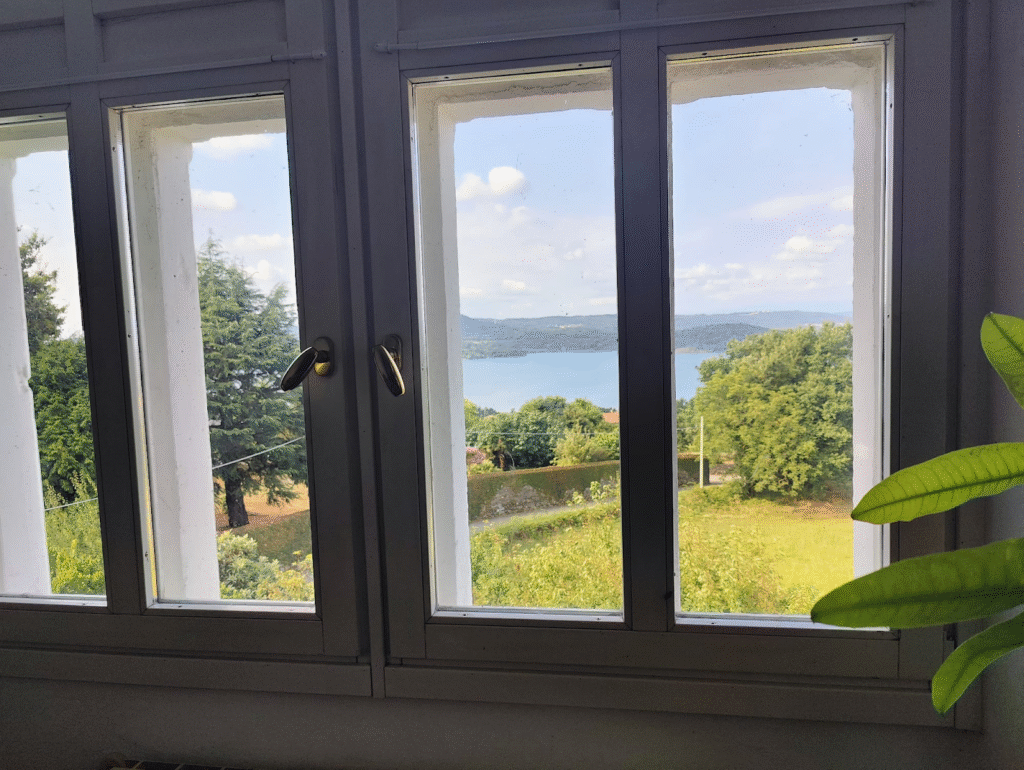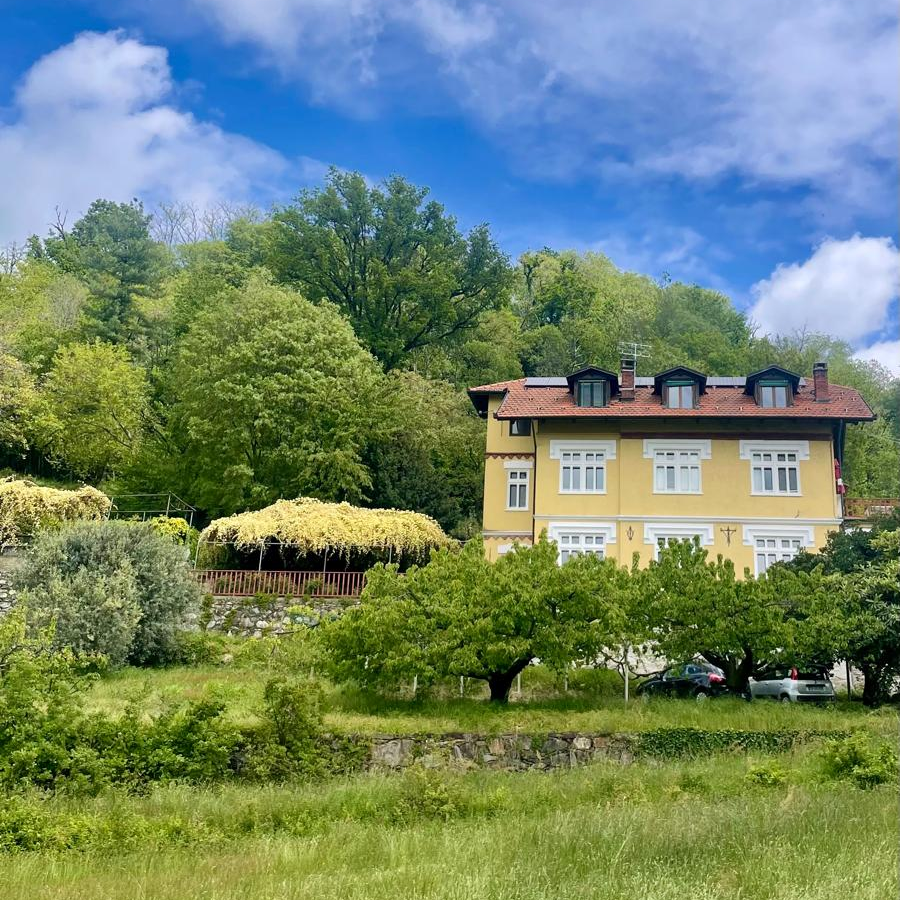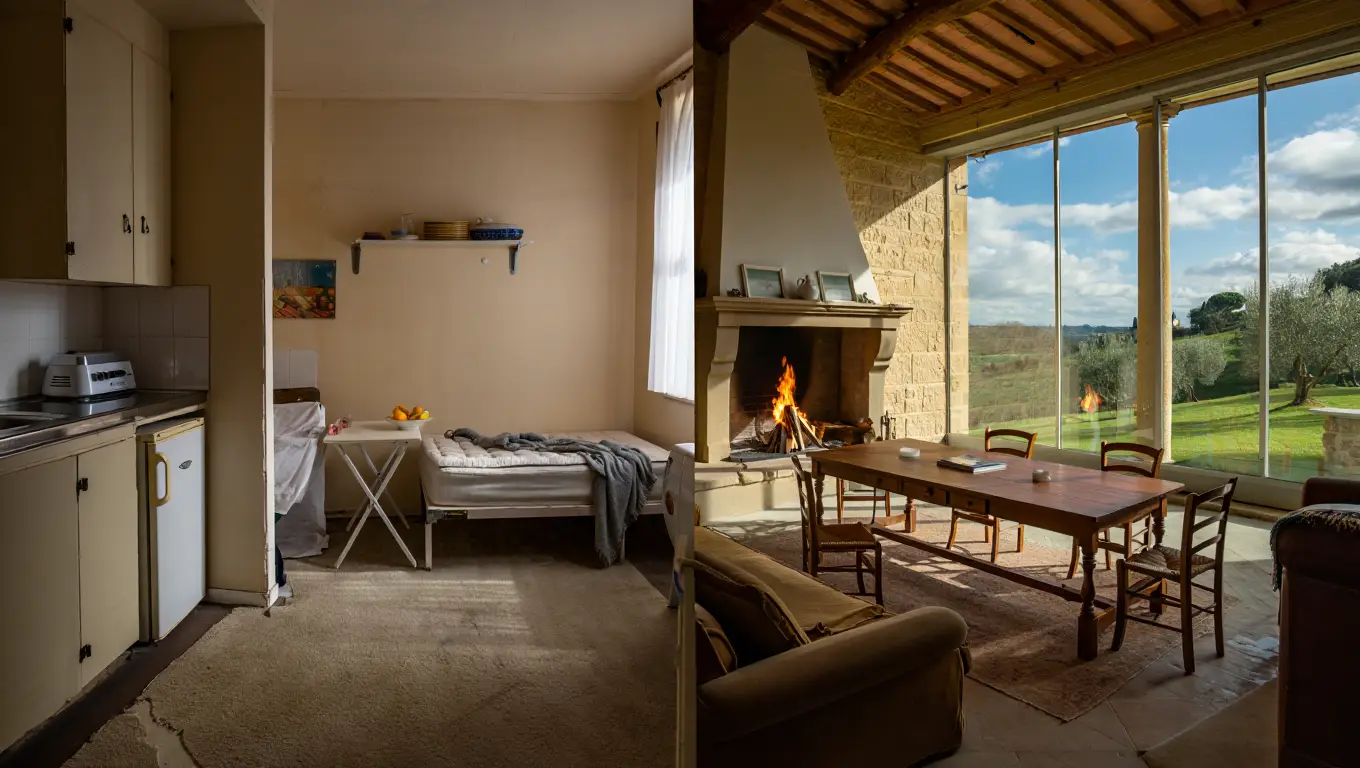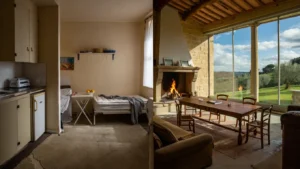Goodbye Rackton Road, Hello Lake Viverone

View of Lake Viverone from our window
From March 2017 until October 2023, I called a two-bed flat on Rackton Road home. Wedged neatly between West Kensington, West Brompton, and Fulham Broadway, it was the classic London rental: functional, small terrace, and forever teetering on the edge of “cosy” and “claustrophobic.”
Back then, the rent was £1,600 a month. Once you factored in bills and Hammersmith & Fulham’s council tax, the real figure hovered around £2,100. That was painful enough. Post-COVID, flats like mine started jumping to £2,300–£2,600 a month, and I realised the city was about to bleed me dry.
Worth noting, I never owned that flat. Some people still assume I did. What I did own were two other flats out in West Drayton, but living there wasn’t on the cards.
Fulham felt livelier, better connected, and frankly, more interesting. But “interesting” doesn’t help much when your bank account’s taking a monthly beating.
The Buying Dream That Died Fast
At some point, like every renter in London, I thought about buying. It didn’t take long for reality to slap me across the face.
Smaller, less appealing flats were going for £600k–£650k. Anything even remotely comparable to my Rackton Road place, or slightly nicer, was closer to £800k–£900k.
With a 0–5% deposit, I could’ve landed a mortgage. Sounds great, until you see the monthly repayment figure: £3,000–£3,500.
Paying over three grand a month for a flat that still meant fighting for space in the kitchen just didn’t add up.
London housing had tipped into absurdity, especially with overseas investors driving prices up and locals like me stuck in the squeeze.
So, I let that dream go.
Then Came Italy

Our Current House in Italy
August 2023, I got married. Two months later, Daniela (my wife) and I swapped London traffic for the Italian countryside.
Now we rent a four-floor villa near Lake Viverone in the Piedmont region. Each floor could pass for its own two-bed apartment. We’ve got four bathrooms (well, three actually usable), a massive garden, and a lake view that makes me laugh whenever I think about what I used to pay in London.
The cost? €1,900 a month (about £1,700). With bills, it comes to roughly £1,850. Let me put that another way: I’m paying less than I did in Fulham for triple the space, fresh air, and tranquillity.
Daniela runs her Pilates and osteopathy practice from home, I work remotely, and we don’t have to squeeze around each other like we did in the flat.
London vs. Italy: The Daily Bill
Money isn’t the only reason the move made sense, but it was a big one.
London costs looked like this:
- Rent: £2,300–£2,600 post-COVID for a similar two-bed.
- Cappuccino: £3.50–£4 (and often served with mild contempt).
- Weekly groceries: closer to robbery, especially at Waitrose.
- Utilities: spiked post-COVID to the point you stopped opening emails from your provider out of fear.
Italy costs look like this:
- Rent: £1,850 all-in for a four-floor villa.
- Cappuccino: €1.50, usually served with a smile.
- Weekly groceries: closer to Tesco pricing, but with fresher produce.
- Utilities: still pricey, but not the daylight robbery levels of London.
The lifestyle shift was huge. Fresh food is standard here, not a luxury. Eating well doesn’t feel like an indulgence; it feels like the norm.
The Joy of Space (and the Pain of Paperwork)
I’d love to say everything about the move was smooth. Spoiler: it wasn’t.
Italy’s bureaucracy deserves its own horror franchise. To even check residency appointments online, I had to buy a special PEC email account. Then the system demanded an email, then a phone call, then an appointment.
Half the time, the ticketing system broke. It took about 18 months, even with an Italian wife and a steady income, to finally get residency sorted.
Property buying is its own headache too. Mortgages are practically impossible without a financial history in Italy.
Buying outright is the only realistic option. Villas like mine hover around €500k. Cheaper properties exist in the €60k–€80k range, but they’re usually small flats you wouldn’t want long-term.
Oh, and transferring £100k+ from the UK into Italy? My accountant warned me off immediately. The tax implications were brutal.
So for now, we’re renting. And honestly, given the space and view we’ve got, I’m okay with that.
Things I Miss About London
It’s not all lakeside bliss. There are things I miss about London life.
Deliveroo, for one. Out here, there’s no tapping a button and having pad thai show up at the door in 30 minutes. Uber is also non-existent. If I want food, I actually have to put shoes on and drive. Brutal.
I also used to fly back to the UK monthly, but that’s slowed since residency was sorted. Convenience was London’s superpower, even if you paid a steep price for it. Italy’s strength is the opposite: better value, more space, slower pace, but you have to accept the trade-offs.
Work Without Borders
The only reason this move was possible is because of work. I’m self-employed, pulling in around £65k–£70k a year. Everything is remote. Post-COVID, when remote work became normal, it gave me the flexibility to make this decision without worrying about commutes or office politics.
Daniela’s work is also home-based. The villa means she has room to see clients without us tripping over each other. Try fitting a Pilates studio into a West Kensington flat, good luck.
London Property: A Broken System
One of the main reasons I don’t regret leaving is what’s happening to the London property market. Locals are getting priced out. Overseas investors treat it like a safe deposit box, while ordinary buyers are left playing musical chairs with fewer and fewer seats.
Between Brexit fallout, COVID shifts, and global buyers snapping up property, London feels less like a city for its residents and more like a showroom for outsiders with deep pockets.
I realised that staying meant paying through the nose for less and less in return.
Why Italy Works for Us
Life here isn’t “perfect”, but it makes sense.
- Space: A villa with a garden, not a flat with a terrace.
- Food: Fresh, local, and affordable.
- Family: Daniela’s relatives nearby.
- Work: No disruption. Remote life continues as normal.
- Cost: £1,850/month vs. £2,300+ for a flat in Fulham.
There are frustrations, sure. Bureaucracy could drive a saint to swearing, and I still mourn the loss of late-night Deliveroo. But the positives outweigh the negatives.
Advice If You’re Thinking About It
If you’re tempted to do something similar, here’s the blunt version:
- Don’t expect perfection. Italy’s charm comes with headaches.
- Have stable remote work before you even think about it.
- Don’t underestimate how slow bureaucracy is. Multiply your estimate by three.
- If you crave convenience and Uber is your lifeline, stay in London.
- If you value space, slower living, and can laugh at paperwork disasters, it’s worth it.
The move works best for people who already enjoy spending time at home, being outdoors, and building routines around their own space. If your happiness depends on constant city buzz, Italy may feel too quiet.
Final Thoughts
Staying in London would have meant continuing to pay £2,100+ a month for a small flat, or stretching myself to £3,500 a month on a mortgage for something only marginally better. That didn’t feel like living, it felt like surviving.
Italy isn’t flawless, but it’s sane. I swapped cramped city living for four floors of space, a garden, and mornings where cappuccinos don’t cost as much as a Pret sandwich. Daniela is happier, I’m happier, and even the dog has more room to run.
London gave me great years, but post-COVID, it no longer worked. The costs kept rising, the space kept shrinking, and sanity was slipping. Italy gave me a way out, one that came with its own frustrations, yes, but also with something priceless: breathing room.




